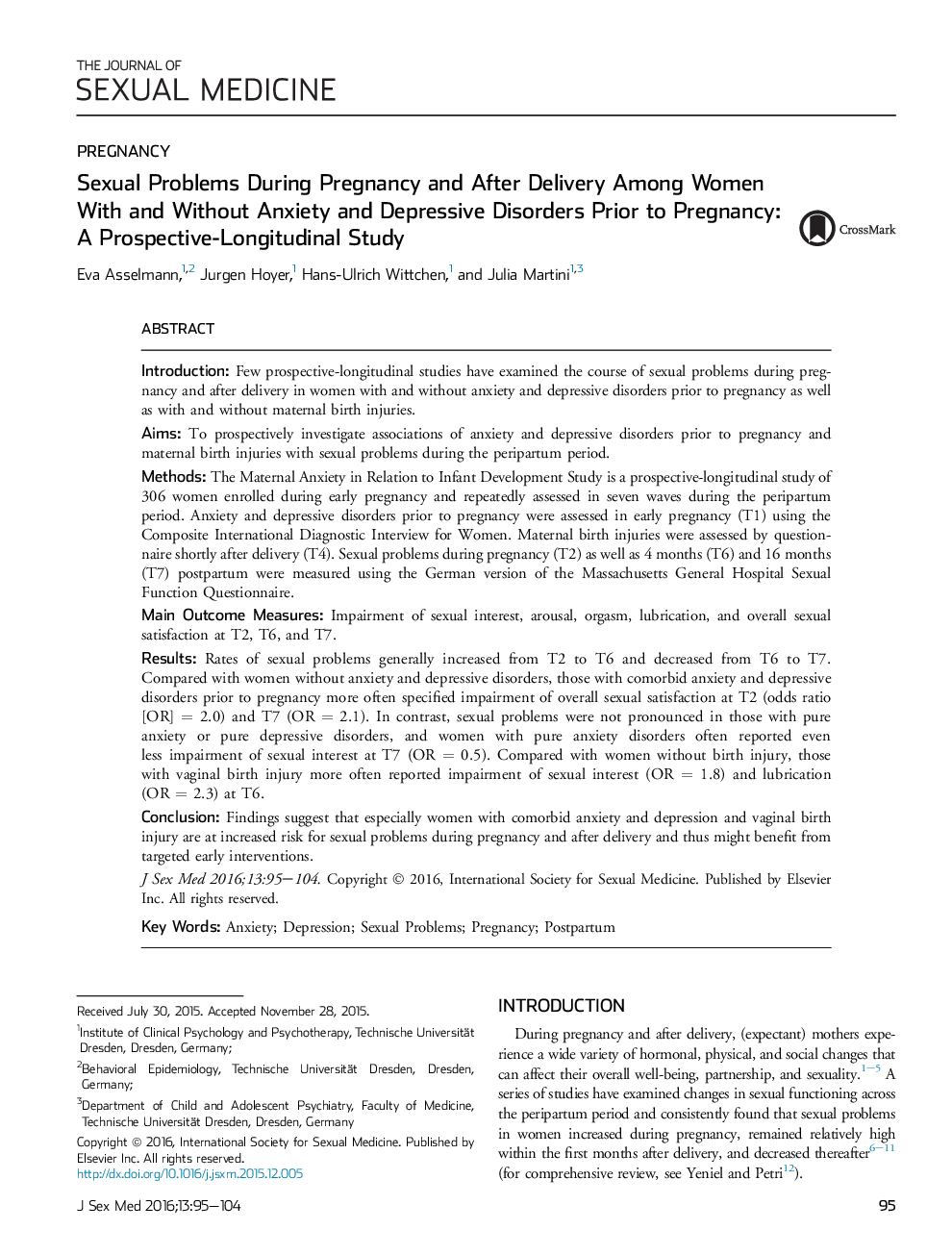| Article ID | Journal | Published Year | Pages | File Type |
|---|---|---|---|---|
| 4269482 | The Journal of Sexual Medicine | 2016 | 10 Pages |
IntroductionFew prospective-longitudinal studies have examined the course of sexual problems during pregnancy and after delivery in women with and without anxiety and depressive disorders prior to pregnancy as well as with and without maternal birth injuries.AimsTo prospectively investigate associations of anxiety and depressive disorders prior to pregnancy and maternal birth injuries with sexual problems during the peripartum period.MethodsThe Maternal Anxiety in Relation to Infant Development Study is a prospective-longitudinal study of 306 women enrolled during early pregnancy and repeatedly assessed in seven waves during the peripartum period. Anxiety and depressive disorders prior to pregnancy were assessed in early pregnancy (T1) using the Composite International Diagnostic Interview for Women. Maternal birth injuries were assessed by questionnaire shortly after delivery (T4). Sexual problems during pregnancy (T2) as well as 4 months (T6) and 16 months (T7) postpartum were measured using the German version of the Massachusetts General Hospital Sexual Function Questionnaire.Main Outcome MeasuresImpairment of sexual interest, arousal, orgasm, lubrication, and overall sexual satisfaction at T2, T6, and T7.ResultsRates of sexual problems generally increased from T2 to T6 and decreased from T6 to T7. Compared with women without anxiety and depressive disorders, those with comorbid anxiety and depressive disorders prior to pregnancy more often specified impairment of overall sexual satisfaction at T2 (odds ratio [OR] = 2.0) and T7 (OR = 2.1). In contrast, sexual problems were not pronounced in those with pure anxiety or pure depressive disorders, and women with pure anxiety disorders often reported even less impairment of sexual interest at T7 (OR = 0.5). Compared with women without birth injury, those with vaginal birth injury more often reported impairment of sexual interest (OR = 1.8) and lubrication (OR = 2.3) at T6.ConclusionFindings suggest that especially women with comorbid anxiety and depression and vaginal birth injury are at increased risk for sexual problems during pregnancy and after delivery and thus might benefit from targeted early interventions.
